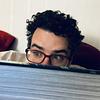Take a photo of a barcode or cover
2.5 I really wanted to like this book. It was like Waiting for Godot with less excitement. It could have been so much more. Why is this considered a classic? I liked other works of Hemingway, but this one was a disappointment.
I got about sixty pages in. That’s it. The language used in conversation drove me nuts.
Revisiting what was once and for some time my favorite novel—teaching it actually. It had been some years since I last read it. I was still blown away by the exquisite beauty of certain passages, the directness, the feeling of honesty that the narrative technique gives you. I was more impressed now with the incredibly bleak message than I was in my twenties and thirties—I’m currently in my fifties, if that matters. The novel’s bleakness made me think of the right-wing attacks on Kurt Vonnegut when he passed away (Fox News’ obit, so sarcastic and condescending), and how the idiot conservative pundits probably think, because he was in a couple of wars and has a macho reputation, that Hemingway was one of them. No, Hannity et al., he was clearly one of us—the great literary resistance to your self-serving white supremacy and false patriotism. It’s a rare case when an author’s form and style appears so open and opaque that the writer’s politics swing this far left—usually formal experimentation goes hand-in-hand with revolutionary politics and conservative beliefs with a blander approach, so-called “realism.” Or maybe it’s just that Hemingway’s experiment in aplomb and direct, adjective-less description has become the norm.
An article I read last year accused the CIA of promoting this direct descriptive style in American letters (“show, don't tell”) through the Iowa Writer’s Workshop during the Cold War. After all, it’s harder to spout dove-ish or revolutionary politics when you're endlessly describing a landscape. Whether the accusations were true or not, they certainly made sense. I used to know some writers at the Village Voice back in the 1990s and they specifically told me that they covered avant-garde art, theatre, and music because they were convinced it went hand-in-hand with progressive politics. The novels and stories of the imitators of Hemingway’s style—Cormac McCarthy and Raymond Carver for instance—seem so bland and typical compared to the startling theme of A Farewell To Arms—that life breaks us all and that resistance to the breaking leads only to premature death. I cannot imagine a more atheistic or leftist message. The world needs to change and take on human suffering as much as it takes on domination and money mongering, no? Or, even more radically, it almost posits a vengeful God (Tower of Babel?) who crushes the strong-willed among us and spares only the obsequious, the obedient collaborators in the horror, and, maybe, the walking wounded.
An article I read last year accused the CIA of promoting this direct descriptive style in American letters (“show, don't tell”) through the Iowa Writer’s Workshop during the Cold War. After all, it’s harder to spout dove-ish or revolutionary politics when you're endlessly describing a landscape. Whether the accusations were true or not, they certainly made sense. I used to know some writers at the Village Voice back in the 1990s and they specifically told me that they covered avant-garde art, theatre, and music because they were convinced it went hand-in-hand with progressive politics. The novels and stories of the imitators of Hemingway’s style—Cormac McCarthy and Raymond Carver for instance—seem so bland and typical compared to the startling theme of A Farewell To Arms—that life breaks us all and that resistance to the breaking leads only to premature death. I cannot imagine a more atheistic or leftist message. The world needs to change and take on human suffering as much as it takes on domination and money mongering, no? Or, even more radically, it almost posits a vengeful God (Tower of Babel?) who crushes the strong-willed among us and spares only the obsequious, the obedient collaborators in the horror, and, maybe, the walking wounded.
emotional
reflective
slow-paced
adventurous
emotional
sad
medium-paced
Plot or Character Driven:
Plot
Strong character development:
No
Loveable characters:
No
Diverse cast of characters:
No
Flaws of characters a main focus:
Complicated
All I am gonna say is, it was a dreadful reading. Full
Of rain. And roads. And dust. And rain. No.
Of rain. And roads. And dust. And rain. No.
There's an irreverence to the writing that I really liked. It didn't start out super compelling but by the end I was hooked.
medium-paced
Plot or Character Driven:
A mix
Strong character development:
Complicated
Loveable characters:
Complicated
Diverse cast of characters:
Complicated
Flaws of characters a main focus:
Complicated
This was my first Ernest Hemingway book and I definitely would read more of his books. For any classic, it is at a slower pace. His English prose and stories are absolutely genius though and makes him worth reading.
Finished this during the Superstorm Sandy blackout. Hemingway is brilliant.
adventurous
dark
sad
medium-paced
Plot or Character Driven:
Character
Strong character development:
Complicated
Loveable characters:
Complicated
Diverse cast of characters:
No
Flaws of characters a main focus:
Yes


